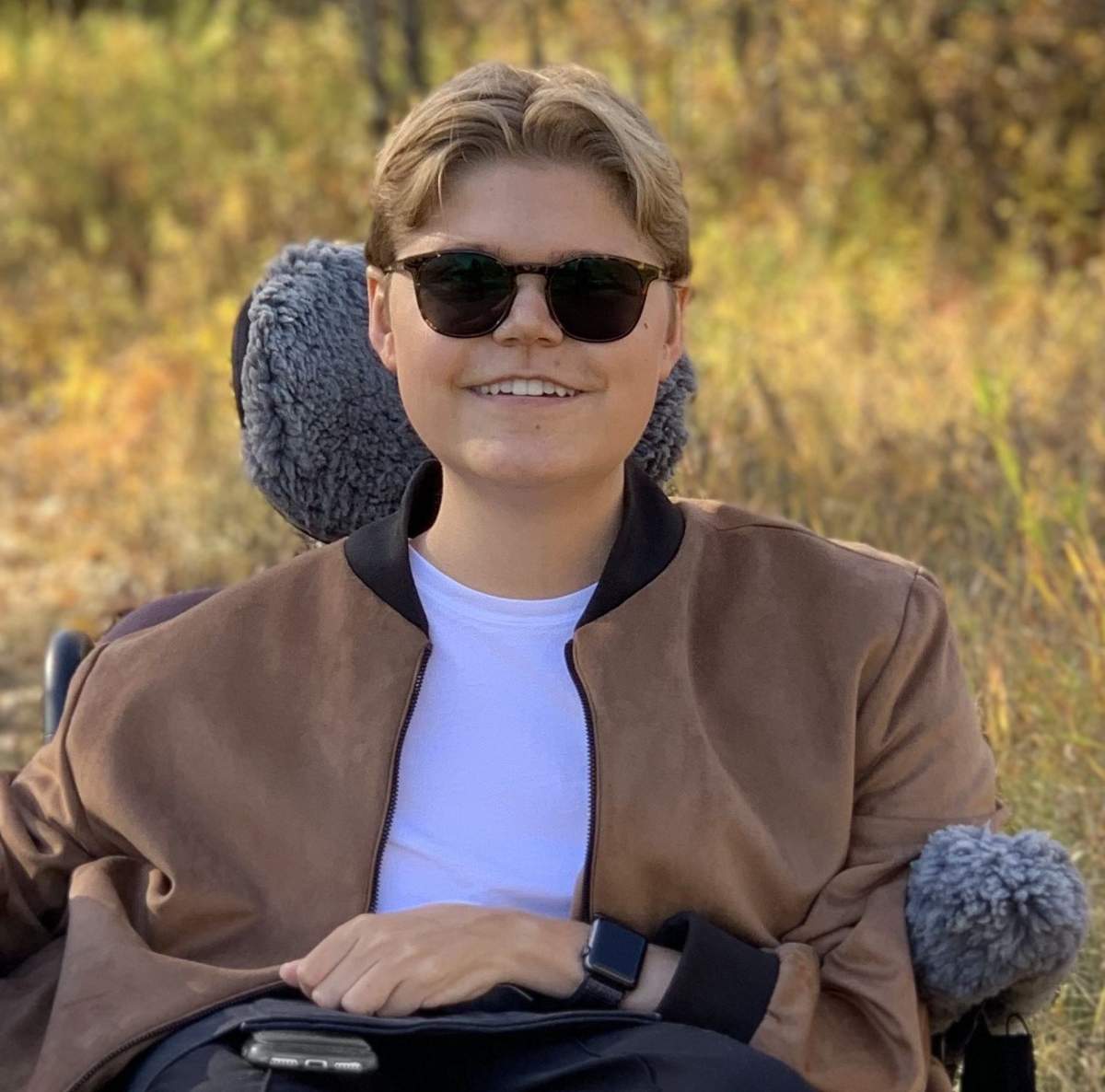The province will soon be moving into the third, and final, stage of reopening, but some Albertans who are immunocompromised are unclear what exactly the future will hold for them.

In particular, there are questions about what level of immunity they have, even if they are fully vaccinated, and if, or when, they will need a booster shot.
Zane Gibson, 23, was diagnosed with Duchenne muscular dystrophy when he was approximately four years old; the condition means the Grande Prairie man has progressive muscle degeneration and weakness.
When the COVID-19 pandemic struck, Gibson was aware he was more at risk because he is on medication that significantly suppresses his immune system.

“That’s why we’ve been super cautious this past year,” Gibson said.
“We’ve actually been in quite severe isolation for the most part of the past year.”
Gibson is now fully vaccinated against COVID-19 but he continues to mainly stay at home. He had initially been excited at the prospect of a return to normal, but admits it is not clear what that will look like for him.
“We don’t know whether I’m fully protected from the vaccines, whether I’m partially protected or whether I have any protection at all,” Gibson said.
University of Alberta infectious diseases specialist Dr. Lynora Saxinger Information suggests some who have autoimmune conditions, are on medications and are highly functional do not have a lot of elevated risk of the COVID disease and probably don’t have a lot of elevated risk of problems with full response to vaccine.
However, that may not be the case for other immunocompromised Albertans.

Get weekly health news
“Within people in that overall group though, certain groups certainly do have a higher likelihood of not getting full protection from the available vaccines,” Saxinger said.
Doctors have previously said booster shots to protect against COVID-19 will be likely but research is still emerging over how often and when they should be administered.
“One problem with the current situation is there’s no standardized, validated test for whether or not the vaccine worked,” Saxinger said.
“We can measure antibodies level as part of research studies, but there’s not a cut-off that tells us that that’s what actually works.”
A study published Wednesday in the New England Journal of Medicine looked at 101 solid-organ transplant recipients who take immunosuppressant drugs; patients received a booster shot after a full vaccination series. Of the 59 patients who had no detectable antibodies after their second dose, 44 per cent showed antibodies four weeks after the third dose. Another 40 patients who had detectable levels of antibodies after their second dose saw boosted antibody levels after their third dose.
“The discussion around that particular study is actually happening already because it did seem to suggest that the third dose might make a big difference for a fairly large proportion of those people who are severely immunocompromised and we will be looking out for other data coming on that as well,” Saxinger said.
While health authorities in France have recommended a third dose in some immunocompromised residents, no similar guidance has been issued in Canada or the United States.

When asked about booster shots for immunocompromised Albertans, Alberta Health said in a statement to Global News it is focusing on fully immunizing Albertans as quickly as possible.
“The more people who are fully vaccinated, the less that COVID-19 is to spread, helping protect those most vulnerable to the virus. We are monitoring emerging research and real world evidence. We will adapt our approach as needed in the weeks and months ahead,” spokesperson Tom McMillan said.
Most of Alberta’s public health restrictions will be lifted on July 1, but Gibson said he is in a state of limbo.
“It feels like everyone else, their lives are going back to some sort of normal that we lived prior to COVID. And now it feels like I’m waiting to see what happens.”
Lorelei Dalrymple, president of the Myeloma Alberta Support Society, said she is hearing similar things from the nearly 300 members of the organization.
“With the immunocompromised people, we don’t know what kind of response our bodies are going to mount. Are we going to create enough antibodies? What kind of efficacy are these vaccines going to have for us?” she said.
“It’s also concerning for us who are on ongoing treatment. There’s certainly peaks and valleys with how our immune systems are working.”
Dalrymple said members have told her that they will take a wait-and-see approach out of an abundance of caution.
“I think a lot of us will continue, when we’re out getting our groceries, wearing a mask, doing the hand sanitizing, wiping down carts,” she said.
Saxinger said precautions such a distancing, masking, spending time outdoors as opposed to indoors and interacting with vaccinated people, as opposed to unvaccinated individuals, will reduce risk for this group.







Comments